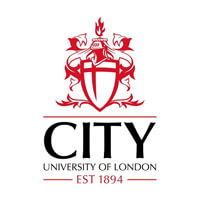fees waived
Media, Communication and Sociology, BSc (Hons)
City, University of London, United Kingdom
Subject ranking
UK / Guardian 2025 4th
UK / ARWU 2024 5th
UK / Times 2025 10th
Costs
food & rentS$24.8K / year
Entry requirements
Scholarships
Limited quantity
Information
Code
Intakes
Website (External)
Programmes
Information
Duration
2028
This joint degree in Media, Communication and Sociology explores the central role of media and cultural institutions in society. It offers a broad range of elective modules, drawing on academic expertise in areas such as publishing, new media, law, celebrity, global media, and sport. Students develop critical thinking, analytical skills, data literacy, and quantitative abilities, enhancing employability through options like the Q-Step pathway, which includes data placements and international opportunities. The program benefits from City, University of London's top ranking for graduate prospects in media and communications.Over three years, the degree covers core modules in media history, social theory, and research methods. Year 1 focuses on foundational topics like media and society. Year 2 delves into new media challenges and social change, with options for quantitative methods. Year 3 allows specialization in areas such as global media industries and celebrity, culminating in a sociology project or dissertation. Assessment primarily involves coursework, essays, presentations, and a final-year project.
Throughout the three years of this BSc Media, Communication and Sociology degree, you’ll work individually and in groups to understand and analyse society and the media, developing a nuanced understanding of both. Year 1 • Media History and Society • Contemporary Issues in Media and Communication • Classical Social Theory • Sociology in Action • Social (Justice) Research: Qualitative Methods • Learning from Social Data • Data and the Social World • Academic and Professional Practice Year 2 Deepen your understanding of news and new media, and society. In year 2 you take six core modules; you can choose one methods module and one other elective. In year 2 You will have the option to join the Quantitative Method pathway (leading to a BSc Media, Communication and Sociology with Quantitative Methods). This pathway includes eight core modules – these are indicated by an asterisk below. • New Media Challenges* • News and Society* • Creative Technologies Project* • Social Action Project • Understanding Social Change* • Contemporary Social Theory* • Quantitative Analysis of Social Research Data* • Qualitative Analysis of Social Research Data • Sociology of Race and Racism • Gender and Society • Quantitative Data Placement* • Visualising Society* Year 3 Draw on the research expertise in the Department to study current issues at the cutting edge of current thinking. You take 30 credits worth of media and communication modules and choose up to 45 credits of elective modules. You also complete a sociology project/dissertation to showcase your skills and interests. If you follow the Criminology with Quantitative Methods pathway, in year 3 you take at least one (15 credits) QM module (from those indicated by an asterisk below); you also take at least 15 credits worth of media and communication modules (any of the below); and you can then choose up to 45 credits worth of elective modules (any of the below). You also complete the sociology project/dissertation which must use quantitative methods. • Sociology Project • Global Media and Sport • Global Media Industries • Celebrity and Society • Political Communication • Digital cultures • Applied Multivariate Analysis* • Poverty: What counts?* • Gender, Sexuality and the Media • Global Migration Processes • Broken Britain? Culture, Employment and Society • Work and Workers • Emotions, Identities and Relationships • Education, Skills and the Job Market • Crime, Culture and the City • Culture, Racisms and Resistance • Changing Ideas about Society in the 21st Century • Interrogating Consumer Culture • Criminal Justice in Crisis • Leisure, the Body and Deviance • Publishing in the Digital Age • Writing Women • Micro-Placement.

